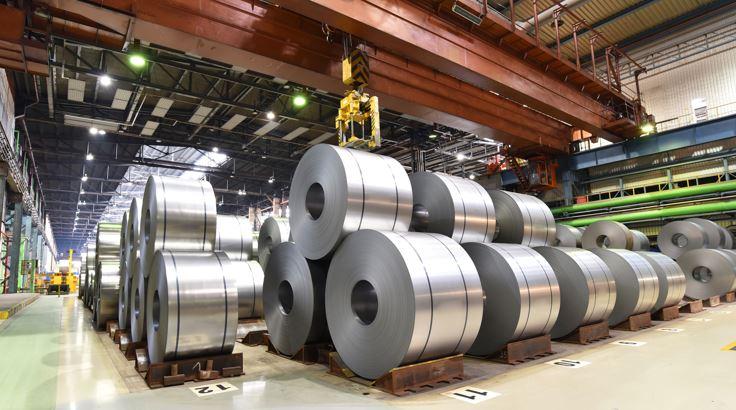Contributing Writer
- FMA
- The Fabricator
- FABTECH
- Canadian Metalworking
Categories
- Additive Manufacturing
- Aluminum Welding
- Arc Welding
- Assembly and Joining
- Automation and Robotics
- Bending and Forming
- Consumables
- Cutting and Weld Prep
- Electric Vehicles
- En Español
- Finishing
- Hydroforming
- Laser Cutting
- Laser Welding
- Machining
- Manufacturing Software
- Materials Handling
- Metals/Materials
- Oxyfuel Cutting
- Plasma Cutting
- Power Tools
- Punching and Other Holemaking
- Roll Forming
- Safety
- Sawing
- Shearing
- Shop Management
- Testing and Measuring
- Tube and Pipe Fabrication
- Tube and Pipe Production
- Waterjet Cutting
Industry Directory
Webcasts
Podcasts
FAB 40
Advertise
Subscribe
Account Login
Search
Changes to steel and aluminum tariff exclusions proposed
Manufacturers and importers will have to take on more of an administrative burden
- By Stephen Barlas
- October 4, 2023
The Biden administration is trying to thread the needle with its proposed changes to the steel and aluminum tariff exclusion process.
The proposed changes announced in late August would make it harder for steel importers to avoid the 25% steel tariff and 10% aluminum tariff imposed by President Donald Trump in 2018. The changes also would make it a bit more difficult for domestic steel and aluminum manufacturers to oppose requested exclusions, which they often do successfully.
The U.S. Department of Commerce’s Bureau of Industry and Security (BIS), which is in charge of the exclusion process, has made a number of administrative tweaks to the exclusion process over the past five years since the tariffs were imposed. Recently, the Government Accountability Office issued a report criticizing both the BIS and the Department of Homeland Security, which is supposed to collect tariff payments, on a number of grounds. (For more information on this, see “GAO report cites U.S. failure to collect some aluminum and steel tariffs.")
The BIS said its new proposals make “important improvements” and are in part a response to comments the agency received to its latest proposed interim changes published in February 2022. The GAO report criticisms are not mentioned, much less noted, as a stimulus for the changes.
Among the key proposed changes are how general approved exclusions (GAEs) and general denied exclusions (GDEs)—the latter of which would be a new category—are established. These are essentially master lists of tariff codes, based on the harmonized tariff schedule of the U.S., which tell importers which products are likely to be approved for tariff exclusion and which products are not. In both cases, these decisions are based on history.
In the case of GAEs, the list includes steel products, whether sheet, pipe, flat products, and other categories, which generally are not available in real time from U.S. steel and aluminum producers. As a result, imports are necessary.
Over time, however, domestic steel manufacturers have proven certain steel products are available in the U.S. With that information being noted, BIS estimates that changes in GAE listings and the new GDE listing could result in up to a 20% reduction in the total number of exclusion requests submitted.
Even if a steel or aluminum product appears to be a candidate for importation based on the GAE list, importers would have to jump through a couple of new hoops before submitting an exclusion request. First, a company would have to prove, via written documentation, that a reasonable substitute exists outside the U.S. and that it made a reasonable effort within the past 12 months to find the exact quality and grade of steel or aluminum from a U.S. manufacturer. That is an upgrade of the current standard that simply asks an importer to certify that their business “expects to consume, sell, or otherwise use the total volume of product … within the next calendar year” across their requests. All such declarations are subject to BIS verification.
Even if a company has met that new “reasonable effort” certification standard, it would next have to go to a select group of foreign providers with whom the U.S. has arrived at a satisfactory alternative agreement. The list of countries that meet that requirement includes Argentina, Australia, Brazil, Canada, Japan, Mexico, South Korea, the United Kingdom, and all of European Union. Again, documentation is necessary.
U.S. steel manufacturers who decide to oppose an exclusion request also will have some new hurdles. Objectors would need to certify that they can supply comparable-quality and -quantity steel or aluminum and make it “immediately available.” (In this case, “immediately available” means within eight weeks.) Along with the new certification, objectors would be required to simultaneously file evidence that they have commercially sold the product at issue within the last 12 months or that they have engaged in sales discussions with this requesting company or another company inquiring about the same product within the last 12 months.
No comments to the BIS have been published from either importers or domestic steel and aluminum manufacturers. That’s expected to change in the coming weeks, and we will offer coverage of these differing viewpoints in upcoming columns.
subscribe now

The Fabricator is North America's leading magazine for the metal forming and fabricating industry. The magazine delivers the news, technical articles, and case histories that enable fabricators to do their jobs more efficiently. The Fabricator has served the industry since 1970.
start your free subscriptionAbout the Author

Stephen Barlas
- Stay connected from anywhere

Easily access valuable industry resources now with full access to the digital edition of The Fabricator.

Easily access valuable industry resources now with full access to the digital edition of The Welder.

Easily access valuable industry resources now with full access to the digital edition of The Tube and Pipe Journal.
- Podcasting
- Podcast:
- The Fabricator Podcast
- Published:
- 04/16/2024
- Running Time:
- 63:29
In this episode of The Fabricator Podcast, Caleb Chamberlain, co-founder and CEO of OSH Cut, discusses his company’s...
- Trending Articles
Tips for creating sheet metal tubes with perforations

Are two heads better than one in fiber laser cutting?

Supporting the metal fabricating industry through FMA

JM Steel triples capacity for solar energy projects at Pennsylvania facility

Omco Solar opens second Alabama manufacturing facility

- Industry Events
16th Annual Safety Conference
- April 30 - May 1, 2024
- Elgin,
Pipe and Tube Conference
- May 21 - 22, 2024
- Omaha, NE
World-Class Roll Forming Workshop
- June 5 - 6, 2024
- Louisville, KY
Advanced Laser Application Workshop
- June 25 - 27, 2024
- Novi, MI



























